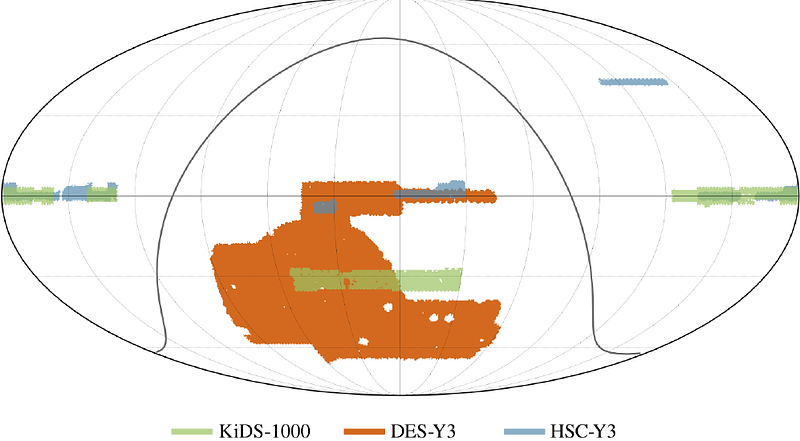Reanalysis of Stage-III cosmic shear surveys: A comprehensive study of shear diagnostic tests

Reanalysis of Stage-III cosmic shear surveys: A comprehensive study of shear diagnostic tests
Jazmine Jefferson, Yuuki Omori, Chihway Chang, Shrihan Agarwal, Joe Zuntz, Marika Asgari, Marco Gatti, Benjamin Giblin, Claire-Alice Hébert, Mike Jarvis, Eske M. Pedersen, Judit Prat, Theo Schutt, Tianqing Zhang, the LSST Dark Energy Science Collaboration
AbstractIn recent years, weak lensing shear catalogs have been released by various Stage-III weak lensing surveys including the Kilo-Degree Survey, the Dark Energy Survey, and the Hyper Suprime-Cam Subaru Strategic Program. These shear catalogs have undergone rigorous validation tests to ensure that the residual shear systematic effects in the catalogs are subdominant relative to the statistical uncertainties, such that the resulting cosmological constraints are unbiased. While there exists a generic set of tests that are designed to probe certain systematic effects, the implementations differ slightly across the individual surveys, making it difficult to make direct comparisons. In this paper, we use the TXPipe package to conduct a series of predefined diagnostic tests across three public shear catalogs -- the 1,000 deg$^2$ KiDS-1000 shear catalog, the Year 3 DES-Y3 shear catalog, and the Year 3 HSC-Y3 shear catalog. We attempt to reproduce the published results when possible and perform key tests uniformly across the surveys. While all surveys pass most of the null tests in this study, we find two tests where some of the surveys fail. Namely, we find that when measuring the tangential ellipticity around bright and faint star samples, KiDS-1000 fails depending on whether the samples are weighted, with a $\chi^2$/dof of 185.3/13 for faint stars. We also find that DES-Y3 and HSC-Y3 fail the $B$-mode test when estimated with the Hybrid-$E$/$B$ method, with a $\chi^2$/dof of 37.9/10 and 36.0/8 for the fourth and third autocorrelation bins. We assess the impacts on the $\Omega_{\rm m}$ - S$_{8}$ parameter space by comparing the posteriors of a simulated data vector with and without PSF contamination -- we find negligible effects in all cases. Finally, we propose strategies for performing these tests on future surveys such as the Vera C. Rubin Observatory's Legacy Survey of Space and Time.